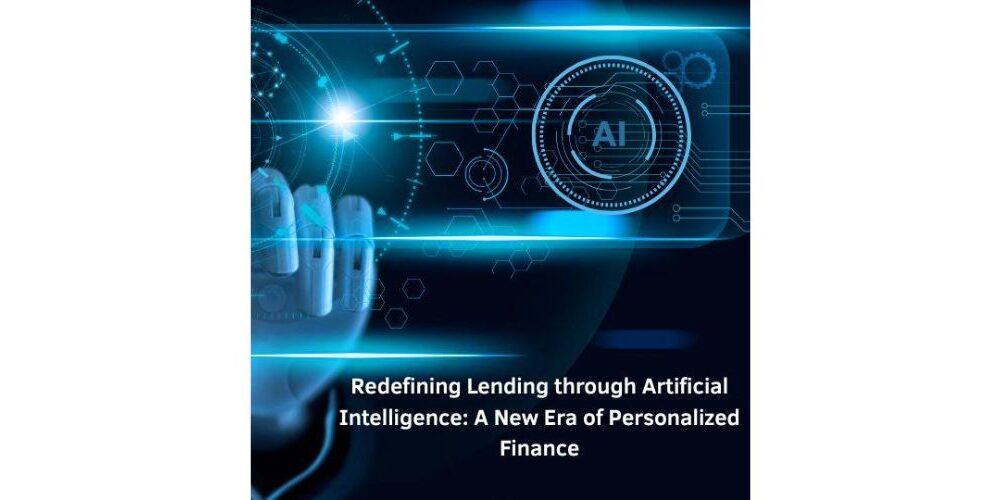Redefining Lending through Artificial Intelligence: A New Era of Personalized Finance

In the rapidly evolving financial landscape, artificial intelligence (AI) is proving to be a transformative force. Author Aditya Arora, an independent researcher, delves into how AI is revolutionizing the way lending institutions acquire, assess, and manage customers, ultimately reshaping the lending ecosystem. This innovation goes beyond basic automation, offering deeper, more sophisticated approaches to financial decision-making that can enhance customer experience, optimize risk assessment, and expand financial inclusion.
The Shift from Traditional to AI-Driven Lending Models
Traditional lending has long relied on static models rooted in demographic data and credit scores, which often fall short in capturing the nuanced realities of individual financial behavior. In contrast, AI-driven lending leverages advanced techniques such as deep learning and neural networks to build more dynamic and predictive models. By incorporating alternative data sources—including transaction patterns, digital behavior, and even social media signals—AI systems can enhance creditworthiness assessments and provide a more holistic view of a borrower’s financial profile. According to industry research, the adoption of AI in credit evaluation has led to measurable improvements, including up to a 31% increase in credit assessment accuracy, reductions in loan default rates, and greater financial inclusion for underserved populations [Source: McKinsey & Company, The future of AI in financial services, 2021].
Moving Beyond Basic Risk Assessment: Hyper-Personalization in Lending
AI is revolutionizing lending through hyper-personalization, moving beyond traditional demographic-based approaches. By using data-driven insights and techniques like synthetic persona modeling and reinforcement learning, lenders can create highly personalized financial products. AI analyzes vast datasets to uncover patterns in individual behavior, allowing for dynamic adjustments to offerings. This results in products that better meet customer needs, driving higher satisfaction, greater adoption, and increased customer lifetime value. AI’s ability to tailor financial solutions ensures a more relevant and engaging experience for each customer.
Example:
Consider a millennial freelancer with fluctuating income and irregular spending patterns. Traditional lending models might classify this individual as high-risk due to unstable earnings. However, an AI-powered lending platform can analyze non-traditional data sources—such as gig income trends, bank transaction histories, social behavior, and even calendar usage—to build a nuanced risk profile. By recognizing that the freelancer consistently meets financial obligations despite variability, the system might offer a flexible line of credit with features like adjustable repayment schedules. This personalized approach not only supports the customer’s unique financial lifestyle but also fosters trust and long-term engagement with the lender.
Leveraging Deep Learning for Accurate Customer Valuation
Deep learning is revolutionizing customer valuation in lending by enabling more precise risk assessment. Models like deep neural networks (DNNs) uncover complex, non-linear patterns in financial behavior that traditional methods miss. Banks using AI-driven credit scoring have seen up to 30% greater accuracy (McKinsey).
AI also integrates diverse data—from financial records to social media—offering a holistic view of a customer’s profile. This leads to smarter decisions and personalized services. Notably, AI can detect potential defaults up to 90 days earlier (Deloitte), boosting early intervention.
Lenders report 10–15% higher approval rates without increasing risk (BCG) and enjoy 20–25% cost savings through AI-based underwriting (Accenture). With over 60% of fintechs using alternative data for credit scoring (World Bank), deep learning is becoming essential for competitive, data-driven lending.
Addressing Ethical Considerations in AI-Driven Lending
While the technical innovations in AI are impressive, they are not without challenges, particularly in terms of ethics and data privacy. The widespread use of AI in lending has raised important concerns about fairness, transparency, and accountability. Customers have become increasingly aware of how their data is being used, and financial institutions must ensure that their AI systems comply with regulatory frameworks while maintaining consumer trust.
Responsible AI implementation involves not just adopting advanced technologies but also integrating ethical safeguards. Institutions must ensure that AI models are explainable and that their decisions are transparent. Moreover, models must be designed to prevent bias, ensuring that they do not unfairly disadvantage certain groups of customers. Ethical AI frameworks are becoming increasingly important, not only to comply with regulations but also to maintain customer loyalty in an age of heightened awareness regarding privacy issues.
The Future of AI in Lending: Opportunities and Challenges
As AI continues to evolve, the potential applications in lending are vast. The integration of real-time decision-making systems, advanced recommendation algorithms, and multimodal learning will lead to even more personalized and efficient lending processes. However, as these technologies advance, it will be crucial for lenders to balance innovation with ethical responsibility.
The future of lending will see financial institutions embracing continuous learning systems, where AI models adapt to changing customer behavior and market conditions in real time. These systems will improve predictive capabilities, helping lenders stay ahead of financial trends and customer needs. However, they will also raise new questions about the oversight of AI systems and their potential to develop behaviors that are not aligned with human values.
In conclusion, the integration of AI into lending practices, as explored by Aditya Arora, marks the dawn of a new era in financial services. The benefits of AI—ranging from enhanced customer personalization to improved risk assessment and operational efficiency—are undeniable. However, for AI to reach its full potential in lending, it must be paired with robust ethical frameworks that prioritize fairness, transparency, and privacy. As the financial sector embraces these innovations, it will be those institutions that integrate both technological advancement and ethical considerations that will lead the way in shaping a more inclusive and efficient financial ecosystem.

Source: Redefining Lending through Artificial Intelligence: A New Era of Personalized Finance


